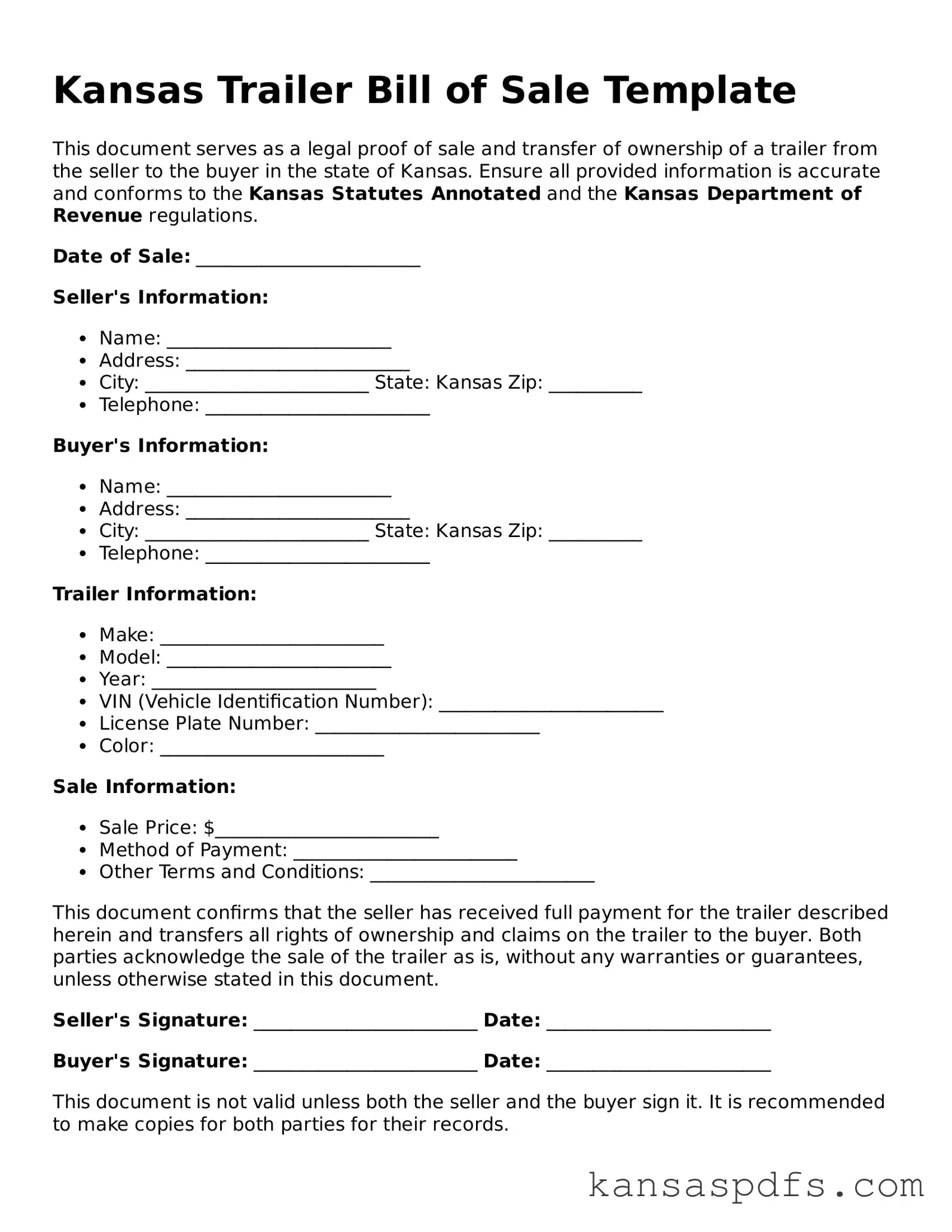What is a Trailer Bill of Sale form in Kansas?
In Kansas, a Trailer Bill of Sale form is a document that records the sale and transfer of ownership of a trailer from the seller to the buyer. It typically includes details such as the description of the trailer, the sale price, and the names and signatures of the parties involved.
Is a Trailer Bill of Sale form required in Kansas?
While Kansas law may not specifically require a bill of sale for the transfer of all types of trailers, it serves as a crucial document for legal protection, providing proof of the transaction and ownership. For certain transactions, particularly those involving the Department of Motor Vehicles (DMV) for registration and titling purposes, a bill of sale might be necessary.
What information should be included in a Trailer Bill of Sale form in Kansas?
A comprehensive Trailer Bill of Sale form in Kansas should include the date of the sale, the full names and addresses of both the seller and the buyer, a detailed description of the trailer (including make, model, year, and Vehicle Identification Number (VIN)), the sale price, and the signatures of both parties. Including an "as-is" clause to specify the sale condition is also recommended.
Do both parties need to sign the Trailer Bill of Sale in Kansas?
Yes, for the document to be considered valid and effective, both the seller and the buyer must sign the Trailer Bill of Sale. These signatures serve as a mutual acknowledgment of the terms and conditions of the sale.
Does the Trailer Bill of Sale need to be notarized in Kansas?
Notarization of the Trailer Bill of Sale in Kansas is not typically required for it to be considered legal and valid. However, having the document notarized can add an extra layer of security, verifying the identity of the signing parties and potentially preventing future disputes.
Can a handwritten Trailer Bill of Sale be legally binding in Kansas?
Yes, a handwritten Trailer Bill of Sale can be legally binding in Kansas, provided it contains all the necessary information and is signed by both parties. However, for clarity and record-keeping purposes, a typed document might be more advisable.
How does a Trailer Bill of Sale protect the buyer and seller in Kansas?
For the seller, the Trailer Bill of Sale offers evidence that the legal responsibility for the trailer has been transferred to the buyer, releasing them from certain liabilities. For the buyer, it serves as proof of ownership and purchase, which is essential for registration, titling, and in case of any legal disputes.
Where can one obtain a Trailer Bill of Sale form in Kansas?
A Trailer Bill of Sale form can be obtained from several sources in Kansas, including online legal document providers, the Kansas Department of Revenue, or an attorney who can provide a form tailored to the specific needs of the transaction.

